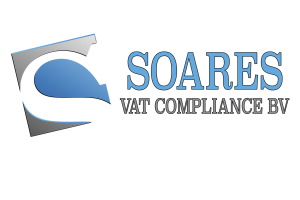General terms
General terms and conditions ( click here to download pdf version)
Article 1 Definitions
- In the present general terms and conditions, the following terms are used in the sense given below:
Customer: the party giving the assignment
Article 2 General
- The stipulations of the present terms and conditions shall apply to each and every offer and agreement between contractor and the customer, to which contractor has declared the present terms and conditions applicable, insofar as parties have not explicitly deviated from the present terms and conditions in writing.
- Contingent deviations to these general terms are valid only then if agreed upon certified explicitly.
Article 3 Acceptance of the Agreement
- Parties will enter the agreement the same moment the engagement letter, signed by both parties, has been received in return by contractor.
- Both parties are free to prove that the agreement has been entered in another way.
- Agreement will be entered indefinitely, unless the agreement states otherwise or if parties have agreed otherwise explicitly and certified.
Article 4 Execution of the Agreement
- The customer shall see to it that contractor shall be provided in due time with all data which contractor has said to be necessary or which the customer must in all reasonableness understand to be necessary to the execution of the agreement. If contractor has not been provided in due time with data necessary to the execution of the agreement, contractor shall have the right to suspend the execution of the agreement and / or to charge the customer for the additional costs resulting from the delay at the generally accepted rates.
- Contractor shall execute the agreement to the best of his knowledge and ability and in compliance with the demands of proper craftsmanship, all this on the basis of the state of science as known then.
- Contractor shall not be liable for damage of whatever nature caused by the fact that contractor worked on the basis of incorrect and / or incomplete data provided by the customer.
- If and in so far required for the proper execution of the agreement, contractor shall have the right to have certain work done by third parties.
- If contractor or third parties engaged by contractor within the scope of the assignment do work at customer’s site or at a site designated by customer, customer shall provide the employees having to work there free of charge with all facilities desired in all reasonableness by said employees.
- Customer shall safeguard contractor against possible claims filed by third parties that may sustain damage attributable to customer in connection with the execution of the agreement.
Article 5 Alteration of the agreement
- If it is shown during the execution of the agreement that the work to be done needs to be changed and / or supplemented in order to ensure its proper execution, parties shall adapt the agreement accordingly in due time and in mutual consultations.
- If parties agree that the agreement needs to be changed and / or supplemented, this decision may influence the time of completion of the execution. Contractor shall inform the customer thereof as soon as possible.
- Should the change and / or supplement to the agreement have any financial consequences, contractor shall inform customer thereof in advance.
- If a fixed rate has been agreed upon then contractor shall indicate the degree to which the change or supplement to the agreement will result in an increase of said fixed rate.
Article 6 Secrecy
- Both parties shall be bound to secrecy of all confidential information they have received within the scope of their agreement from each other or from another source. Information shall be considered to be confidential if the other party has indicated so or if confidential character results from the nature of the information.
- If a statutory provision or a judicial decision compels contractor to convey confidential information to third parties designated by law or by the court and contractor cannot for that purpose invoke a legal right to refuse to give evidence or such a right acknowledged or allowed by the competent court, contractor shall not be held to pay damages or compensation and the opposite party shall not be entitled to demand the dissolution of the agreement on the ground of any damage resulting from said circumstance.
Article 7 Intellectual Property and Copyrights
- All documents, such as reports, advises, agreements, designs, software etc., provided by contractor, shall be destined to be used by customer exclusively and must not be reproduced, made public or brought to the notice of third parties by customer without prior consent from contractor, unless the nature of the documents provided dictates otherwise.
- Contractor shall reserve the right to use the knowledge gained due to the execution of the work for other purposes, in so far no confidential information shall be brought to the notice of third parties when doing so.
Article 8 Remuneration, Price and Costs
- Parties can agree upon a fixed remuneration.
- When no fixed remuneration has been agreed upon, remuneration will be determined on the basis of the actual working hours. The remuneration will be calculated according to the agreement between contractor and customer.
- The prices given in above-mentioned agreement shall be exclusive of VAT and other government levies, as well of other costs made within the scope of the agreement, inclusive mileage compensation unless explicitly agreed upon otherwise.
- Contractor will be authorized to increase the remuneration with consent of the customer, when during the execution of the agreement activities agreed upon, or quantity of the activities agreed upon, appear to have been underestimated to a large extent. In such case, contractor cannot be expected in all reasonableness to execute agreement for the initial remuneration agreed upon.
- Contractor will inform the customer in advance in writing about the increase of the remuneration or rate. Contractor will mention the extension, and the date when the increase becomes effective.
Article 9 Payment
- Payment must be made within 14 days from the date of invoice, in a way to be indicated by contractor and in the currency stated on the invoice. Contest of the amount of the invoices shall not suspend the fulfillment of the payment obligation.
- If customer fails to fulfill his payment obligation within the term of 14 days, then customer shall owe an interest of 1 % per month, unless the statutory interest rate is higher, in which case the statutory interest rate shall be applied. The interest on the amount due and payable shall be calculated as from the day the customer is in default until the moment he has paid the amount in full.
- If the customer fails to fulfill his obligations (in due time) or defaults them, then all reasonable costs incurred to have all extra-judicial costs and debts paid shall be borne by the customer. The customer shall, in any case, owe the collection charges in the event of a monetary claim. The collection charges shall be calculated in accordance with the collection rates advised by the Nederlandse Orde van Advocaten (Dutch BAR Association) for collection procedures.
- If contractor demonstrates that he has incurred higher expenses, which were necessary for reason, said expenses should qualify for reimbursement as well.
- The reasonable judicial and execution costs possibly incurred shall equally be borne by customer.
Article 10 Termination
- When the contractor gives notice before expiry of the agreement, contractor will provide transfer of activities still to be executed, unless circumstances underlie the termination of the agreement which is not imputable to the contractor.
- When the transfer of the activities will bring additional charges, customer will be charged for this as well.
Article 11 Liability
- Contractor shall never be liable for indirect damage, including consequential damage, loss of profit, lost savings and damage due to business stagnation. The maximum liability is restricted to the remuneration of the particular contract.
Article 12 Suspension and Dissolution
- Contractor shall be authorized to suspend the fulfillment of the obligations under the agreement, in event that:
- customer does not fulfill or does not fully fulfill his obligations resulting from the agreement.
- customer was asked to furnish security to guarantee the fulfillment of his obligations resulting from the agreement when the contract was concluded and that this security is not provided or insufficient.
- after the agreement has been concluded, contractor learns of circumstances giving good ground to fear that the customer will not fulfill his obligations. If good ground exists to fear that the customer will only partially or improperly fulfill his obligations, suspension shall only be allowed in so far the shortcoming justifies such action.
- Contractor shall furthermore be authorised to dissolve the agreement if circumstances arise of such a nature that fulfilment of the obligations becomes impossible or can no longer be demanded in accordance with the requirements of reasonableness and fairness, or if other circumstances arise of such a nature that the unaltered maintenance of the agreement can no longer be demanded in all reasonableness.
- If the agreement is dissolved, the contractor’s claims against the customer shall be forthwith due and payable.
Article 13 Force Major
- Contractor shall not be held to fulfill any of his obligations if he is hindered to do so due to a circumstance through no fault of his own and which cannot be attributed to him by virtue of law, a legal action or generally accepted practice.
- In addition to the provisions of the law and the judge-made law in this respect, force major shall in the present general terms and conditions furthermore be understood to be any external circumstance, be it envisaged or not, on which contractor cannot have any influence but which prevents contractor from fulfilling his obligations.
- Insofar contractor has already partially fulfilled his obligations resulting from the agreement at the moment the circumstances of force major commenced or shall be able to fulfil them, and insofar separate value can be attributed to the part already fulfilled or still to be fulfilled respectively, contractor shall be entitled to invoice the part already fulfilled or still to be fulfilled respectively. The customer shall be held to pay this invoice as if it were a separate agreement.
Article 14 Disputes and applicable law
- Dutch law shall apply to each and every agreement between contractor and the customer.
- The Court in contractor's place of business shall have exclusive jurisdiction to hear actions unless the District Court is the competent Court. Contractor shall nevertheless be entitled to submit the dispute to the Court deemed competent by the law.
- Parties shall only refer the matter to the court if they have done their utmost to solve the dispute in mutual consultations.



